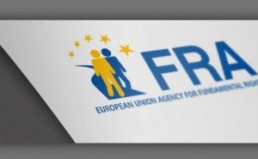ILGA-Europe welcome Belgium’s decision to put an end to the sterilisation requirements and the mental health diagnosis previously required in order to have access to legal gender recognition. Today’s vote in parliament means that Belgium will have a new law governing the legal gender recognition process. The fact that the new procedure is largely based
Tag Archive: gender recognition

On January 8th, 2016 the National LGBT* rights organization LGL visited the Equal Opportunities Ombudsman’s Office of the Republic of Lithuania to host a training “Protection against Discrimination on the Grounds of Gender Identity and Gender Expression: Luxury or Necessity?” for the Office’s lawyers and staff. During the training in the Equal Opportunities Ombudsman’s Office

Fresh off of the country’s first same-sex weddings, Ireland’s government is pushing forward with more changes – amending LGBT equality law exemptions for schools and hospitals. The Republic of Ireland approved same-sex marriage in a landslide referendum earlier this year, by 62.07% to 37.93% – and overcoming bureaucratic hurdles, yesterday the green light has been
On Friday 2 October, Polish President Andrzej Duda vetoed the Gender Accordance Act, to the dismay of activists in Poland and all over Europe. This was a prime opportunity for Poland to join their European counterparts, such as Malta and Ireland, who have improved gender recognition provisions in 2015. ILGA-Europe had previously urged President

The New Zealand government is changing the way it records gender – allowing people to identify as “gender diverse”. The government’s official data collection body Statistics NZ announced the change, which will be the new standard across government agencies. It explained: “‘Gender diverse’ will join ‘male’ and ‘female’ categories in a new gender-identity classification released today

TRANS PEOPLE in Ireland will now not have to rely on testimony from psychiatrists or endocrinologists to have their gender recognised by the state. Instead, their self-declaration will be accepted, for the purpose of updating passports, driving licences, obtaining a new birth cert, and getting married. Tánaiste Joan Burton announced this evening that the Cabinet

The Swedish government tabled in January two law proposals on legal gender recognition and gender reassignment treatment. The aim of the proposal on legal gender recognition is to make the process more simple and more transparent. If adopted, all Swedish residents older than 15 years old could apply to have their legal gender changed. Applicants

On December 9, 2014, the EU Fundamental Rights Agency (FRA) presented the largest comparative study on the experiences of trans people in all 28 EU Member States. The FRA calls the results “alarming”, but highlights that legal frameworks and good policies have a positive impact on trans people’s lives. The FRA study was launched at an

